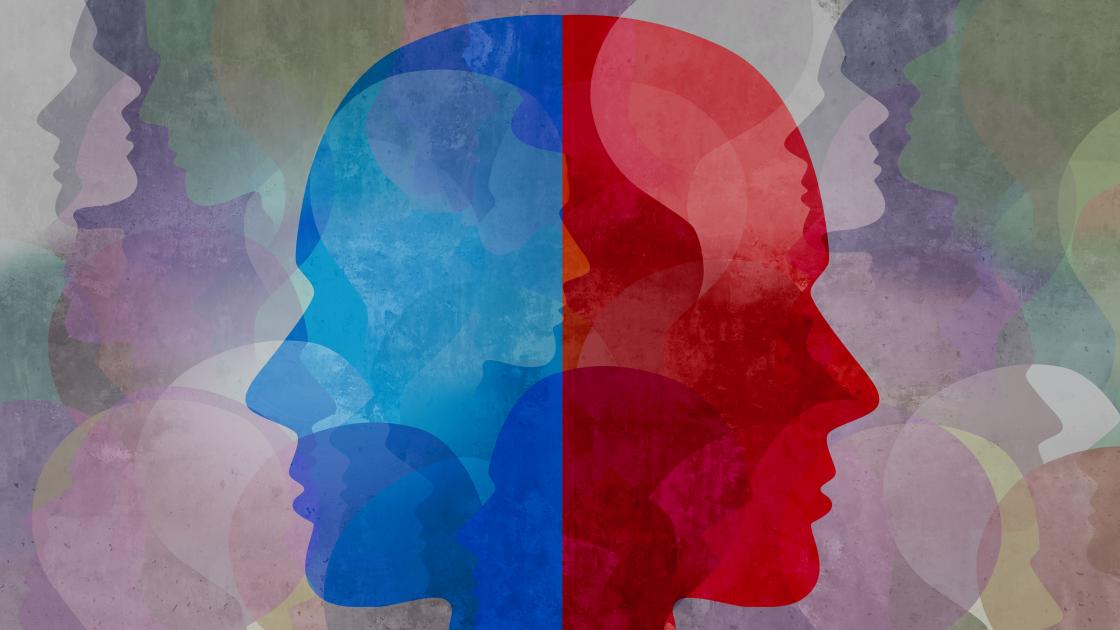
What is a personality disorder?
Having a personality disorder can make it extremely difficult to relate to others and function in daily activities. With appropriate treatment, however, many people with personality disorders are able to lead fulfilling and productive lives.
Our team at SIU Medicine helps people with personality disorders discover the individualized treatment and support they need to improve their quality of living, learn valuable coping skills and strengthen their relationships with others.
What is a personality disorder?
The American Psychiatric Association (APA) describes a personality disorder as a way of thinking, feeling and behaving that deviates from the expectations of the culture, causes distress or problems functioning and lasts over time.
Considered a type of mental illness, a personality disorder can only be diagnosed by certain medical professionals, including psychiatrists. Diagnosis typically involves a comprehensive interview and potentially a series of psychological and physical tests to confirm a disorder, rule out other conditions and/or identify co-existing conditions.
People from all walks of life can develop a personality disorder. Family history of mental illness, childhood trauma, brain and nervous system characteristics and other environmental factors are possible risk factors.
Types of personality disorders
The APA recognizes 10 specific types of personality disorders, each of which exhibit a specific pattern or trait. They include:
- Antisocial personality disorder: disregarding or violating the rights of others (e.g., acting impulsively, repeatedly lying or deceiving other people, and not conforming to social norms)
- Avoidant personality disorder: extreme shyness, feelings of inadequacy and extreme sensitivity to criticism
- Borderline personality disorder: instability in personal relationships, difficulty regulating intense emotions, poor self-image and impulsivity
- Dependent personality disorder: needing to be taken care of and frequently exhibiting submissive and clingy behavior
- Histrionic personality disorder: excessive emotion and attention seeking
- Narcissistic personality disorder: the persistent need for admiration, along with a lack of empathy for others
- Obsessive-compulsive personality disorder: preoccupation with orderliness, perfection and control (this is distinct from obsessive compulsive disorder, which is a type of anxiety disorder)
- Paranoid personality disorder: being suspicious and assuming others are trying to harm or deceive them
- Schizoid personality disorder: detachment from social relationships and expressing little emotion
- Schizotypal personality disorder: significant discomfort in close relationships and exhibiting distorted thinking, odd beliefs and odd behaviors
About 9 percent of adults in the United States are thought to be living with a personality disorder. It's important to understand that even two people with the same personality disorder might exhibit different signs, symptoms and behaviors.
Living with a personality disorder: treatment and support options
As with other mental health conditions, personality disorders are typically managed using a combination of treatments including psychotherapy, medications and lifestyle modifications. The exact plan of care an individual needs depends on factors specific to them, including their overall health, disease severity and type of disorder.
Close, ongoing collaboration with a multidisciplinary medical team is important support for people with personality disorders, as well as their loved ones.
Are you or someone you know living with a personality disorder?
At SIU Medicine, we're committed to providing area-leading psychiatric and mental health care in a private and caring environment, and can offer innovative treatment options to our patients.
Contact SIU Medicine at 217-545-8000 today to connect with a psychiatrist, therapist or other health care provider in central and southern Illinois who can help you or your loved one living with a personality disorder.




